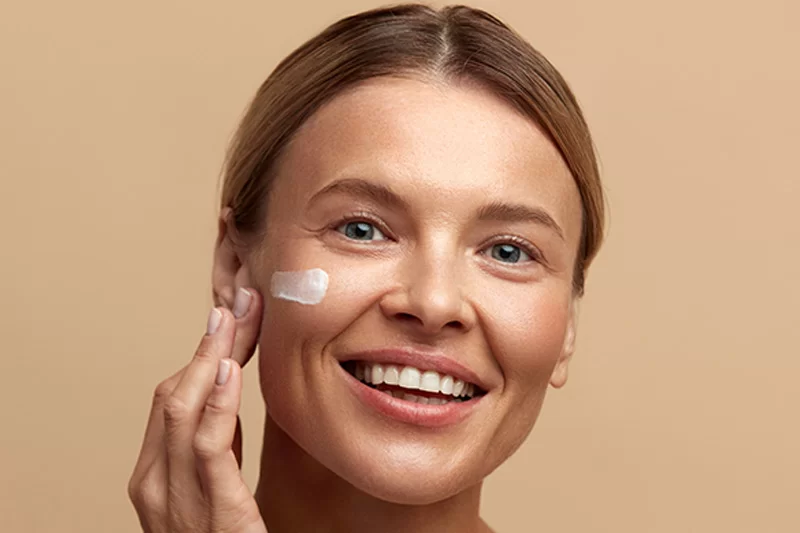Retinol Serum for Face: Benefits, Usage, and How to Choose the Right One

Skincare has come a long way over the years, and one of the most trusted ingredients in modern beauty routines is retinol. Known for its remarkable ability to reduce signs of aging, retinol serum for face is often hailed as a miracle product. This ingredient, a derivative of Vitamin A, works to transform your skin by promoting cell turnover, increasing collagen production, and reducing the appearance of wrinkles, fine lines, and acne. In this blog post, we will dive deep into the world of retinol serum for face, discussing its benefits, how to use it, what to look for when choosing a serum, and common misconceptions surrounding this skincare powerhouse.
What is Retinol?
Retinol belongs to a class of compounds known as retinoids, which are derived from Vitamin A. While Vitamin A is essential for several bodily functions, retinol is particularly beneficial for the skin. Retinol works by penetrating the epidermis (the outer layer of skin) and promoting cell turnover, which means it encourages the shedding of old skin cells and stimulates the production of new, healthy ones.
Retinol is often confused with other retinoids, such as retinaldehyde and retinoic acid. However, retinol is gentler than these other forms, making it a popular choice for over-the-counter (OTC) skincare products. Unlike retinoic acid, which requires a prescription, retinol is available in lower concentrations that are safer and suitable for regular use.
Why Use Retinol Serum for Face?
- Anti-Aging Benefits
Retinol is widely known for its ability to reduce the visible signs of aging. As we age, our skin’s ability to renew itself slows down, leading to dullness, fine lines, and wrinkles. Retinol increases cell turnover, which helps to smooth out fine lines and wrinkles over time. It also stimulates collagen production, a vital protein that keeps the skin firm and youthful. - Brightening Effect
If you struggle with hyperpigmentation, dark spots, or an uneven skin tone, a retinol serum for face can help. Retinol breaks down pigmented cells and speeds up skin renewal, leading to a brighter complexion. Regular use can result in a more even skin tone and faded dark spots. - Acne Treatment
Retinol is not just an anti-aging wonder; it is also effective in treating acne. By promoting faster cell turnover, retinol helps to unclog pores and prevent breakouts. It can also reduce the appearance of acne scars over time. - Smoothing Skin Texture
Uneven skin texture is a common concern for many people. Retinol helps by exfoliating the skin from within, making it smoother and more radiant. Regular use of a retinol serum for face can result in visibly smoother and softer skin. - Reducing Large Pores
Retinol is known to reduce the appearance of large pores. By clearing out clogged pores and encouraging skin renewal, it minimizes the size of pores, giving your skin a more refined look.
How to Use Retinol Serum for Face
Retinol can be a game-changer for your skin, but it’s important to use it correctly to avoid irritation, dryness, or sensitivity. Here are some guidelines for safely incorporating retinol serum for face into your routine:
- Start Slowly
If you’re new to retinol, it’s best to start slowly. Begin by using the serum once or twice a week to allow your skin to build tolerance. Gradually increase usage to every other day, and eventually to nightly use if your skin can tolerate it. - Apply at Night
Retinol is sensitive to sunlight, which can degrade its effectiveness. For best results, apply your retinol serum at night. In the morning, be sure to apply a broad-spectrum sunscreen with at least SPF 30, as retinol can make your skin more sensitive to UV rays. - Use a Pea-Sized Amount
A little goes a long way with retinol. Use a pea-sized amount for your entire face, avoiding sensitive areas like the corners of your eyes, lips, and the sides of your nose. - Moisturize
Retinol can be drying, especially in the early stages of use. To combat dryness, apply a hydrating moisturizer after your serum. If you experience extreme dryness or irritation, consider using your moisturizer before applying the retinol serum as a buffer. - Don’t Over-Exfoliate
Since retinol already promotes exfoliation, you don’t need to use additional exfoliating products like scrubs or acids. Over-exfoliating can cause irritation, redness, and peeling. - Be Patient
Retinol takes time to show results. While some people may see improvements in their skin within a few weeks, it can take several months of consistent use to see significant changes. Stick with it!
How to Choose the Right Retinol Serum for Face
With so many retinol products on the market, it can be overwhelming to choose the right one for your skin type and concerns. Here are a few factors to consider when selecting a retinol serum for face:
- Concentration
Retinol serums come in different concentrations, typically ranging from 0.25% to 1%. If you’re new to retinol or have sensitive skin, start with a lower concentration (0.25% or 0.5%) and gradually work your way up as your skin becomes accustomed to the product. Stronger concentrations, like 1%, are best suited for experienced users or those with more significant skin concerns like deep wrinkles or stubborn acne. - Formulation
Look for a retinol serum that is formulated with hydrating ingredients like hyaluronic acid, glycerin, or ceramides to help combat the drying effects of retinol. Additionally, antioxidants like Vitamin C can enhance the brightening effects of retinol and provide further protection against free radicals. - Packaging
Retinol is sensitive to light and air, so opt for products that come in opaque, airtight packaging. Serums in pump bottles are ideal because they limit exposure to air and help to preserve the potency of the retinol. - Skin Type
If you have sensitive or dry skin, look for a gentle formula with a lower concentration of retinol and hydrating ingredients. For those with oily or acne-prone skin, a lightweight, non-comedogenic serum is best.
Common Misconceptions About Retinol Serum for Face
- Retinol Causes Sun Sensitivity
While retinol can make your skin more sensitive to the sun, it does not cause sunburns. The real issue is that sunlight can break down the retinol, rendering it less effective. That’s why it’s best to use retinol at night and always wear sunscreen during the day. - Retinol Thins the Skin
Contrary to popular belief, retinol does not thin the skin. In fact, it helps to thicken the skin by stimulating collagen production and speeding up cell turnover. This can lead to a more youthful, plump appearance over time. - More is Better
When it comes to retinol, less is more. Overusing retinol can lead to irritation, dryness, and peeling. Stick to the recommended pea-sized amount and be patient with the results. - You Shouldn’t Use Retinol on Sensitive Skin
While it’s true that retinol can be irritating, people with sensitive skin can still benefit from it by starting with a low concentration and slowly building up their tolerance. Many brands offer gentle retinol formulations designed specifically for sensitive skin.
Potential Side Effects of Retinol Serum for Face
While retinol is generally safe for most skin types, it can cause side effects, particularly when you first start using it. These side effects are usually temporary and subside as your skin adjusts to the product.
- Dryness and Flakiness
One of the most common side effects of retinol is dryness, which can lead to flakiness or peeling. To minimize this, make sure to follow up with a rich moisturizer. - Redness and Irritation
Some people experience redness, stinging, or irritation when they first begin using retinol. If this happens, reduce your usage to once or twice a week and gradually increase as your skin builds tolerance. - Increased Sensitivity to Sun
Retinol makes your skin more sensitive to sunlight, which is why it’s crucial to wear sunscreen daily when using a retinol serum.
Conclusion
Incorporating a retinol serum for face into your skincare routine can yield impressive results, from reducing wrinkles and brightening skin tone to treating acne and minimizing pores. While it may take time to see noticeable improvements, consistency is key to reaping the full benefits of retinol. Start slow, be patient, and always protect your skin with sunscreen during the day. With the right approach, retinol can help you achieve smoother, more radiant, and youthful-looking skin.






